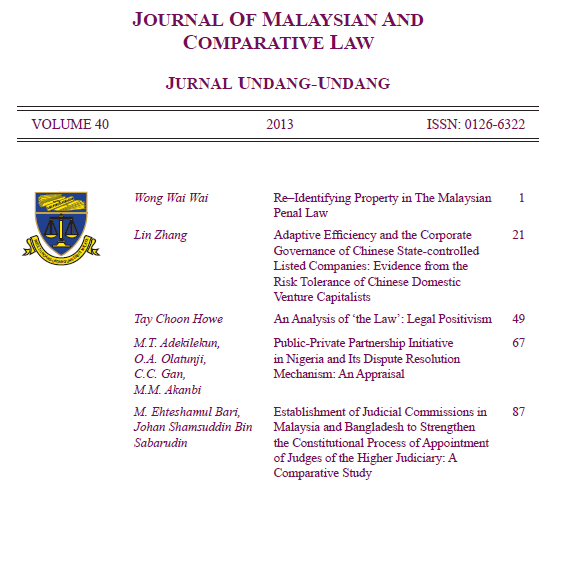Adaptive Efficiency and the Corporate Governance of Chinese State-controlled Listed Companies
Evidence from the Risk Tolerance of Chinese Domestic Venture Capitalists
Abstract
The existing literature on the corporate governance of Chinese state-controlled listed companies (the SCLSs) focuses more on agency costs. There is inadequate attention being paid to its adaptive efficiency through the perspective of venture capital (VC). With the template of American VCs, this article tries to fill this gap on the basis of the evidence from the risk tolerance of Chinese domestic venture capitalists. The existing research has established the linkage between the prosperity of the American VC industry and the remarkable risk tolerance of American venture capitalists. Unfortunately, with the institutional barriers imposed by the control-based model of the SCLCs, the risk tolerance of Chinese domestic venture capitalists is lower than their American counterparts. The implication from this study is that adaptive efficiency and agency costs are equally important factors which ought to be considered when we put forth any reform proposal for the corporate governance of the SCLCs. In case of neglecting either of them, the overall efficiency will be jeopardised.



